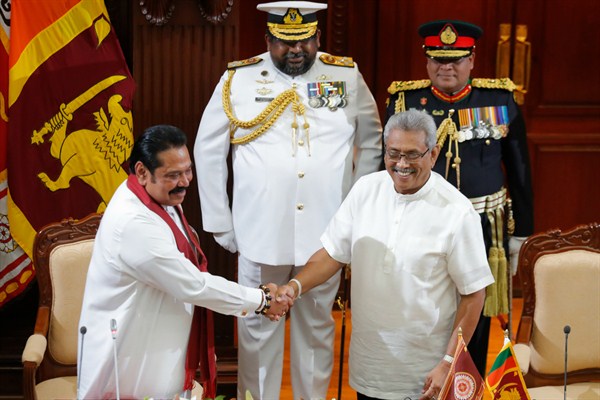Sri Lanka has a tendency to flow in and out of global headlines in one of two ways. After a decades-long civil war between the government and ethnic Tamil separatists ended in 2009, it has periodically burst into the news, usually as a result of a paroxysm of violence. The rest of the time, during periods of calm, Sri Lanka datelines tend to arrive with glossy stories about tourism to an island nation rich in natural beauty.
Which Sri Lanka appears in headlines in the years to come will depend to a large degree on the ramifications of the recent presidential election held on Nov. 16, when voters pivoted sharply, handing a landslide victory to a familiar but divisive face from the past and turning their backs on a disappointing reformist government.
The winner was Gotabaya Rajapaksa, the former defense minister and brother of former President Mahinda Rajapaksa. He trounced his main challenger, Saith Premadasa, of the governing United National Party. Yet Rajapaksa received almost no support from outside his own ethnic group, the mostly Buddhist Sinhalese population that makes up about 70 percent of Sri Lanka’s population. Ethnic Tamils account for about 15 percent, and Muslims approximately 10 percent.

